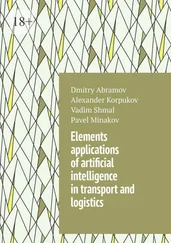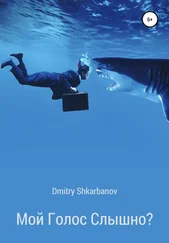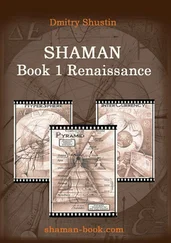A heavy silence descended on the room. Homer had heard the brigadier was on special terms with the command of the station because he was so irreplaceable in combat. But only now did the realisation dawn that, unlike all the other Sebastopolites, this man didn’t seem to defer to the commanders at all.
And at this moment he didn’t seem to be waiting for the approval of these two elderly, jaded men, but simply giving them an order that they were obliged to carry out, which made Homer wonder yet again just who this man was.
The perimeter commander exchanged glances with his superior and frowned, about to object, but instead merely gestured helplessly.
‘You decide for yourself, Hunter, it’s pointless trying to argue with you.’
The old man hovering by the door pricked up his ears: he hadn’t heard that name before at Sebastopol Station. Not even a name, but a nickname, like he had – he wasn’t really called Homer, of course, he was just common or garden Nikolai Ivanovich, who had been named after the Greek teller of myths here at the station, for his irrepressible love of all sorts of stories and rumours.
‘Your new brigadier,’ the colonel had said to the watchmen, who were examining with morose curiosity this broad-shouldered newcomer clad in Kevlar and a heavy helmet. Ignoring basic courtesy, he turned away indifferently: the tunnel and the fortifications seemed to interest him far more than the men entrusted to his command. He shook the hands of his new subordinates when they came up to make his acquaintance, but he didn’t introduce himself, nodding without speaking, committing each new nickname to memory, and puffing out bluish, acrid cigarette smoke into their faces to demarcate the limits of closeness. In the shadow of the raised visor his narrow gun-slit eye, framed by scars, had a ghastly, lack-lustre gleam to it. None of the watchmen had dared to insist on knowing his name, either then or later, and so for two months now they had been calling him simply ‘Brigadier’. They decided the station must have shelled out for one of those expensive mercenaries who could manage perfectly well without a past or a name.
Hunter. Homer silently worked the strange un-Russian word around on his tongue. Better suited for a Central Asian Shepherd Dog than a man. He smiled gently to himself: well, well, so he still remembered that there used to be dogs like that. Where did all this stuff in his head come from? A fighting breed with a short docked tail and ears clipped right in close to the head. Nothing superfluous.
And the name, if he kept repeating it to himself for a while, started sounding vaguely familiar. Where could he have heard it before? Borne along on an endless stream of gossip and tall stories, it had snagged his attention somehow and then settled on the very bottom of his memory. And now it was overlaid with a thick layer of silt: names, facts, rumours, numbers – all that useless information about other people’s lives that Homer listened to with such avid curiosity and tried so zealously to remember.
Hunter… maybe some jailbird with a reward from Hansa on his head? The old man tossed the idea like a stone into the deep millpond of his amnesia and listened. No, nothing. A stalker? He didn’t seem like one. A warlord? More like it. And a legendary one, apparently…
Homer cast another stealthy glance at the brigadier’s face, so impassive that it seemed almost paralysed. That dog’s name suited him remarkably well.
‘I need a team of three men. I’ll take Homer, he knows the tunnels around here,’ the brigadier went on, without even turning towards the old man or asking his permission. ‘You can give me another man you think will suit. A runner, a courier. I’ll set out today.’
Istomin jerked his head hastily in approval before he gathered his wits and raised his eyes enquiringly to look at the colonel. The colonel frowned and muttered gruffly that he had no objections either, although for days he had been battling desperately with the station commandant for every free soldier. It seemed like no one intended to consult Homer, but he didn’t even think of arguing: despite his age, the old man had never refused this kind of assignment. And he had his reasons for that.
The brigadier snatched his immensely heavy helmet up off the desk and headed towards the exit. Lingering in the doorway for a moment, he said brusquely to Homer:
‘Say goodbye to your family. Pack for a long journey. Don’t bring any bullets, I’ll give you those…’ And he disappeared through the opening.
The old man set off after him, hoping to hear at least some basic explanation about what he should expect on this expedition. But when he emerged onto the platform, Hunter was already way ahead, ten of his massive strides away, and Homer didn’t even try to catch up with him, but just shook his head and watched him go.
Contrary to his usual habit, the brigadier had left his head uncovered: perhaps, lost in thoughts of other things, he had forgotten, or perhaps he was feeling a need for air right now. He passed a gaggle of young women – pig herders idling away their lunch break – and there was a whisper of disgust behind his back: ‘Ooh girls, my God, what a repulsive freak!’
‘Where the hell did you dig him up from?’ asked Istomin, slumping back limply in his chair in relief and reaching out his plump hand to a pile of cut cigarette papers.
People said the leaves that were smoked with such relish at the station were gathered by the stalkers at some spot on the surface almost as far away as Bitsevsky Park. Once, for a joke, the colonel had held a radiation dosimeter to a packet of ‘tobacco’, and it had started chattering away menacingly. The old man had given up smoking on the spot, and the cough that had been tormenting him at night, terrifying him with thoughts of lung cancer, had gradually started to ease. But Istomin had refused to believe the story of the radioactive leaves, reminding Denis Mikhailovich, with good reason, that in the Metro absolutely anything you picked up was more or less ‘hot’.
‘We’re old acquaintances,’ the colonel replied reluctantly; then he paused and threw in: ‘He didn’t used to be like this. Something happened to him.’
‘That’s for sure, if his face is anything to go by, something definitely happened to him,’ the commandant snorted, and immediately glanced towards the door, as if Hunter could have been loitering there and overheard him by chance.
The commander of the defensive perimeter had no right to grumble about the brigadier’s unexpected return from out of the cold mists of the past. From the moment he showed up at the station, he had effectively become the backbone of the perimeter’s defence. But even now Denis Mikhailovich couldn’t entirely believe that he had come back.
The news of Hunter’s strange and terrible death had flashed round the Metro the previous year, like an echo racing through the tunnels. And when Hunter turned up on the doorstep of the colonel’s little room two months ago, the colonel had hastily crossed himself before opening the door. The suspicious ease with which the resurrected man had passed through the guard posts – as if he had walked straight through the soldiers there – made the colonel doubt that this miracle was entirely benign.
Through the steamed-up spyhole of the door he saw what seemed to be a familiar profile: a bull neck, a cranium scraped so smooth that it shone, a slightly flattened nose. But for some reason the nocturnal visitor had frozen in semi-profile, with his head lowered, and he didn’t make any attempt to lighten the heavy silence. Casting a reproachful glance at the large, open bottle of home-brew beer standing on the table, the colonel heaved a deep sigh and pulled back the bolt. The honour code required him to help his own, and it drew no distinctions between the living and the dead.
Читать дальше











